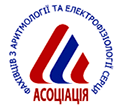News of Cardiology and Cardiac Surgery
Contemporary management of acute right ventricular failure: a statement from the Heart Failure Association and theWorking Group on Pulmonary Circulation and Right Ventricular Function of the European Society of Cardiology
V.-P. Harjola, A. Mebazaa, J. Čelutkienė, D. Bettex, H. Bueno, O. Chioncel, M. Crespo-Leiro, V. Falk, G. Filippatos, S. Gibbs, A. Leite-Moreira, J. Lassus, J. Masip, C. Mueller, W. Mullens, R. Naeije, A.V. Nordegraaf, J. Parissis, J. Riley, A. Ristic, G. Rosano, A. Rudiger, F. Ruschitzka, P. Seferovic, B. Sztrymf, A. Vieillard-Baron, M. Yilmaz, S. Konstantinides
Acute right ventricular (RV) failure is a complex clinical syndrome that results from many causes. Research efforts have disproportionately focused on the failing left ventricle, but recently the need has been recognized to achieve a more comprehensive understanding of RV anatomy, physiology, and pathophysiology, and of management approaches. Right ventricular mechanics and function are altered in the setting of either pressure overload or volume overload. Failure may also result from a primary reduction of myocardial contractility owing to ischaemia, cardiomyopathy, or arrhythmia. Dysfunction leads to impaired RV filling and increased right atrial pressures. As dysfunction progresses to overt RV failure, the RV chamber becomes more spherical and tricuspid regurgitation is aggravated, a cascade leading to increasing venous congestion. Ventricular interdependence results in impaired left ventricular filling, a decrease in left ventricular stroke volume, and ultimately low cardiac output and cardiogenic shock. Identification and treatment of the underlying cause of RV failure, such as acute pulmonary embolism, acute respiratory distress syndrome, acute decompensation of chronic pulmonary hypertension, RV infarction, or arrhythmia, is the primary management strategy. Judicious fluid management, use of inotropes and vasopressors, assist devices, and a strategy focusing on RV protection for mechanical ventilation if required all play a role in the clinical care of these patients. Future research should aim to address the remaining areas of uncertainty which result from the complexity of RV haemodynamics and lack of conclusive evidence regarding RV-specific treatment approaches.
Key words: right ventricular dysfunction, right ventricular function, heart failure, intensive care, сardiogenic shock.
| [PDF] | [References] |








